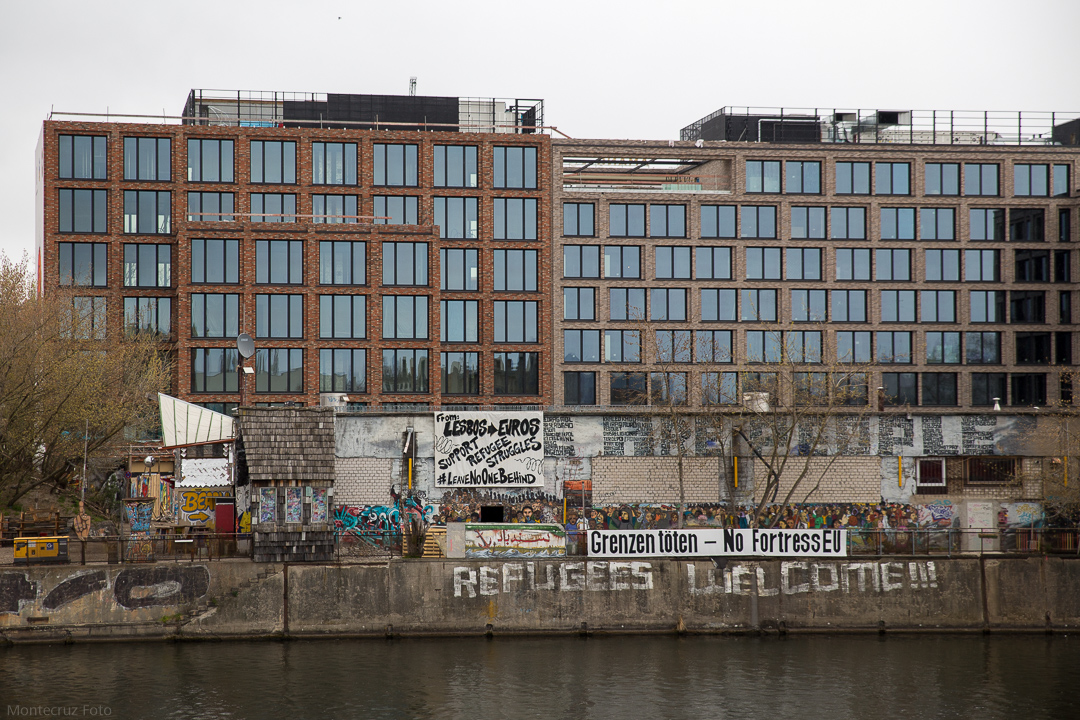Suddenly everything happened very quickly. Only two days before the verdict was to be announced, information leaked that the Federal Constitutional Court would publish its decision on the Berlin rent cap on the 15th of April. The announcement also came as a surprise because there had not even been an oral hearing on the matter. The decision was drastic: The Berlin rent cap, which would have frozen and partially lowered rents for the next five years, was declared “null and void” because the state of Berlin had no jurisdiction in this area.
According to the court, the federal legislature had already made regulations in this regard, especially with the (unfortunately ineffective) Mietpreisbremse (rent brake). The overturning of the rent cap means that landlords can now demand higher rents, even retroactively. With its ruling, the court explicitly did not decide on the “proportionality” of the rent restrictions, but only on the formal legal question of jurisdiction.
How did the rent cap come about?
The political significance of the ruling is best understood from the way the law came about. In 2018, the jurist Peter Weber published a legal paper arguing that the federal states could enact regulations on maximum rents because of their jurisdiction over housing. An experimental, but not implausible argument. Weber had previously failed in his attempt to enter into discussion with the Linke-controlled Senate Department for Urban Development on the matter. However, his article was taken up by some Berlin SPD members.
However, their initiative would probably not have received much attention if the campaign “Deutsche Wohnen & Co Enteignen!” had not caused a stir at the same time. The massive popularity of the campaign, also among the SPD base, put the SPD leadership under pressure to launch “something of its own” (Mayor Michael Müller, SPD). Therefore, Weber’s idea for an expansive interpretation of state competence in housing policy was further pursued by the SPD.
Its parliamentary group in the Berlin House of Representatives commissioned an expert opinion to back up Weber’s arguments and created a typically social democratic campaign with the slogan “build – cap – buy”. Internally, the campaign served its purpose. An SPD party conference voted against supporting the expropriation demand – albeit barely, with significant bloc of almost 40 percent support for expropriation. Michael Müller had been able to win over the party congress with the argument that with the rent cap the SPD now had “something of its own” of which it could be proud.
Die LINKE (the Left party) reacted hesitantly to the initiative at first, but then quickly adopted it. Partly against the resistance of the SPD-influenced administration and in cooperation with many external advisors, the then left-wing Senator for Urban Development, Katrin Lompscher, drafted a corresponding law, which not only meant a freeze on rents to a large extent, but even the lowering of existing rents. Violations of the law were to be punished with heavy fines. The SPD leadership became a little queasy about this implementation of their initiative. This led to fierce disputes within the coalition about how consistently Berlin wanted to use its legal authority. With some toning down, the law was finally passed.
The landlord lobby enters the scene
The landlords and their political lobby (CDU, FDP and AfD) went to war against the law from day one: the house owners went on a landlords’ strike and thereby artificially reduced the supply of housing in the city for people searching. It is true that this violates Berlin’s ban on the misappropriation of housing (Zweckentfremdungsverbot). But when laws are directed against the interests of the owners, conservatives and liberals do not see the “rule of law” so narrowly. Consequently, they interpreted the withholding of flats less as a sign of the willingness of real estate capital to skirt the law, than as evidence of the impossibility of governing “against the market”.
“The house owners went on a landlords’ strike and thereby artificially reduced the supply of housing in the city for people searching.”
The borough administrations, which have been consistently subjected to budget cuts, did not have the means to follow up on this, and police support in urban policy issues is only available when it comes to harassing and evicting self-managed spaces. At the same time, the landlords forced the new tenants to sign so-called shadow tenancy agreements. This refers to the rents that could be demanded without a rent cap. In this way, real estate capital has already built up for the case of the rent cap falling. For tenants, this means that they will be faced with sometimes considerable rent debts if they have to make additional payments. Since many could only afford the flat because it was rented at a lower price due to the rent cap, they could not simply put the money aside. A real social time bomb is now threatening to go off.
The most important counterattack, however, was on the legal level. The CDU and FDP parliamentary groups in the Bundestag filed a Normenkontrollklage (lawsuit for the enforcement of norms) against the rent cap before the Federal Constitutional Court (asking whether the state of Berlin even has the competence and jurisdiction to enact such a law). At the same time, there were numerous proceedings before the regular Berlin courts in conflicts between tenants and landlords. While some courts recognised the rent cap, others referred the law to the Federal Constitutional Court for clarification. The court has now ruled against the interests of tenants in Berlin.
What to do? Cap rents nationwide? Expropriate?
The court’s decision comes at a politically dynamic time. The Constitutional Court explicitly did not rule on the content of the law. This means that the discussion about a nationwide rent cap will now pick up speed. The issue could thus become salient for the federal elections in September. The nationwide campaign Mietenstopp already exists on this issue, which is also supported by the German Tenants’ Association (Deutscher Mieterbund) and the German Trade Union Federation (DGB).
Moreover, now, only half a year before the Berlin state elections, the SPD leadership is under pressure to rethink its stance on Deutsche Wohnen & Co expropriation. They can no longer reassure their base by saying that they already have “something of their own”.
Socialisation is not only more sustainable – it is also legally watertight!
The decision of the Federal Constitutional Court was announced right in the middle of the second collection phase for the Deutsche Wohnen & Co expropriation referendum. The campaign has never seen a contradiction between the rent cap and its demands. However, the rent cap case now adds urgency to the necessity of expropriation. At the same time, the political opponents of the campaign will try to turn the legal defeat of the rent cap against the campaign with the claim “If that’s not possible, then expropriation is even more impossible”.
However, this misses a crucial fact: the interpretation of the question of competence for the rent cap was legally disputed, including by the legal consultancy services (Wissenschaftliche Dienste) of the German national Parliament, which have denied the state competence. For the expropriation demand, however, the same services concluded that it is legal. Socialisation is therefore not only more sustainable – it is also legally watertight!
Kalle Kunkel is organised in the Interventionist Left (Interventionistische Linke) and is active in the campaign Deutsche Wohnen & Co. Enteignen.
This article first appeared in German on the Analyse & Kritik Website. Reproduced with permission. Translator Ian Clotworthy is also active in Deutsche Wohnen & Co. Enteignen.




